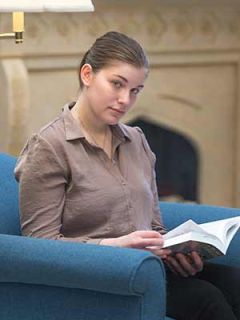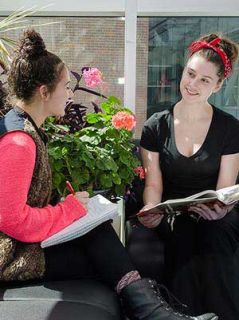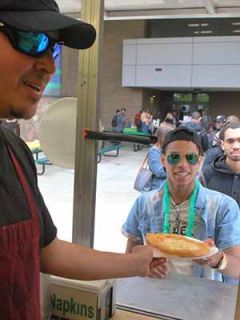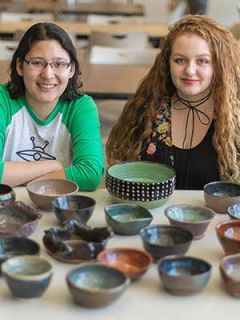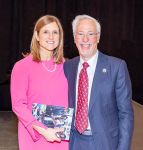News and Releases
NVCC Mathematics Professor Honored With Publication of Snapshots from Teaching Journal
Share
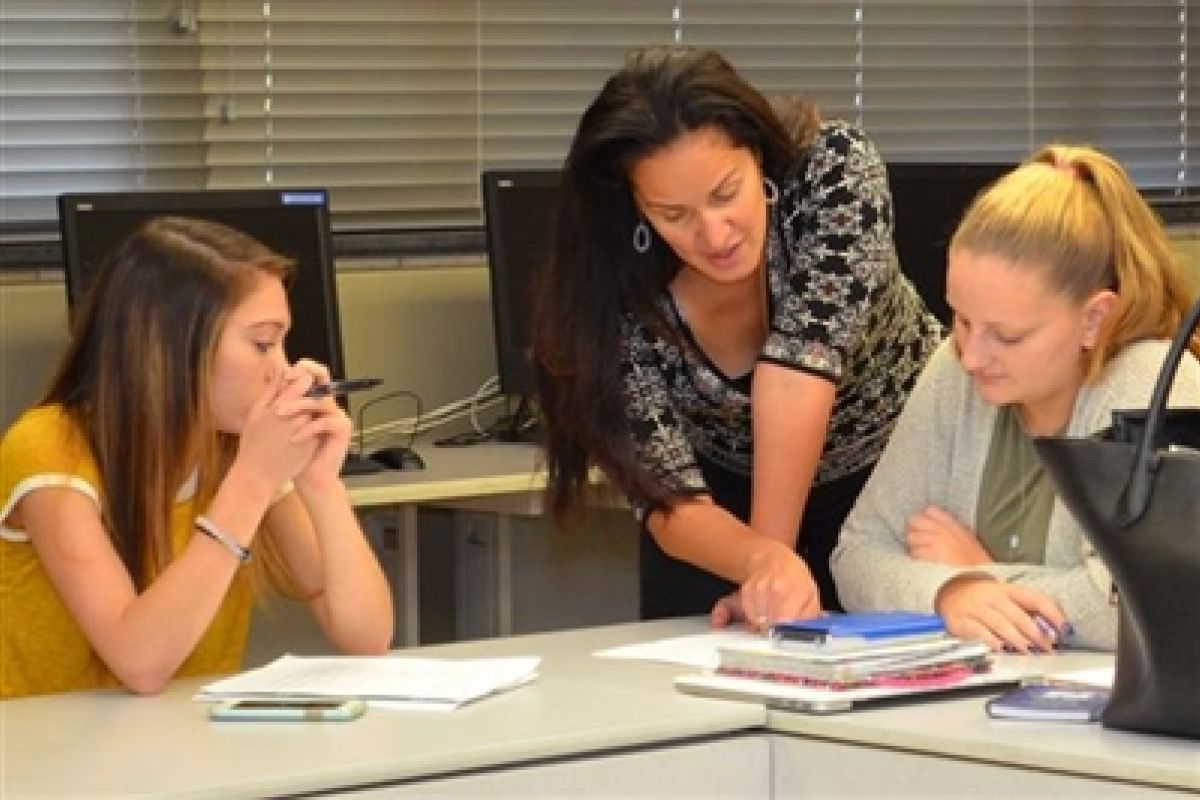
Urbina-Lilback shared two instructional principles from her own teaching journal. The first was to “design flexible lessons that are open to student input which focused on the teacher-student and the students-students relationships in the classroom…The importance of relational components in the classroom cannot be overstated. Teachers teach individuals. Students have different cultures, life experiences, and formed identities. These differences need to inform our instructional approaches, but in order to do so we must find creative ways to get to know our students.”
The second was to “build on misconceptions and errors, which can be a major source of learning… Teachers must proactively seek to understand the extent to which students have grasped a concept, because it helps them target their instruction to particular learning needs.”
To illustrate these two principles in action, she shares “snapshots” from her teaching journal. Examples that demonstrate the application that took place during the instruction of two fundamental topics in algebra: expressions and applications of linear functions. Readers are invited to enter the classroom through these snapshots.
Snapshots called “Numerical Expressions,” “The Math Buffet” and “Systems of Linear Functions” illustrate her creative application of principles designed to share personal experiences, questions regardless of their ability level and a playful approach to storytelling.
Urbina-Lilback concludes with an important question, “How do we know we are making a difference? “ she asks. “The dramatic transformation…from the unnerving first day, to students filling up a board with questions and then confidently communicating mathematically…reaffirms that we are indeed making a difference.”
“Seeing the pride on their faces as they walk across the stage to receive their graduation certificate is one of the most rewarding feelings a teacher can ever have. This is what I choose to focus on every day that I enter my classroom.”
When asked why she teaches and why she writes, we heard the words of a professor who loves her job.
“I teach because I like to make a difference. I know I make a difference from students’ ‘aha’ moments in the classroom. I love their reactions when something we are exploring is suddenly clear to them. I love when they see that math is not drill and skill without meaning, but that it is about thinking critically, asking why, and asking themselves ‘does this make sense?’ In the article I referenced my feelings when I see my students graduate, but at that moment I celebrate much more. Having spoken with so many of my graduates, I also know that soon after, they will be succeeding in their careers or furthering their education in four-year institutions and eventually for some, in graduate school.
I write because I want to help advance the field of research in math education, particularly in the area of equitable teaching. I have learned much from my students and colleagues at the community college about what works in practice. In writing from these experiences, what I have learned in equitable teaching can be made accessible to other teachers. The more we all share, the more we all learn.”
Other Naugatuck Valley Community College News
HAVE A QUESTION? EMAIL US.
Reporters and media inquiries, please contact us at

